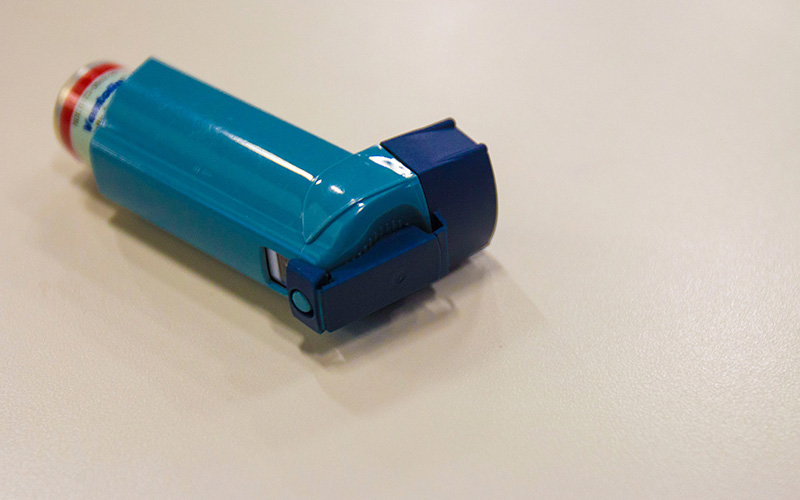PHOENIX – Arizona’s asthmatic children might breathe easier this fall if legislation shielding public and charter schools from lawsuits for dispensing aid without parental consent becomes law.
House Bill 2208 would allow public and charter schools to stock and administer asthma medication to students during an emergency.
“(This) could be the difference between a life or death situation for a child,” said bill sponsor Rep. Heather Carter, R-Cave Creek.
Of course, school officials would call 911 for an emergency, but for rural schools or schools without a nurse, every minute counts, Carter said.
Some schools already have a process in place where parents sign a form giving the school nurse consent to administer inhalers to students. The student’s family supplies the medication.
“The inhaler must be in its box with the prescription information on the label,” said Lucinda Sorensen, a registered nurse with the Laveen Elementary School District.
But sometimes students forget their inhaler at home or aren’t aware they have asthma.
Sorensen, in her seven years of nursing, cited one time she couldn’t help a student right away. The student didn’t have asthma attacks often, but he couldn’t find his inhaler so he went to the nurse’s office.
“The school called the parent who brought it in for the child to use,” she said. “If we were unable to reach the parent, or if the situation was severe, we (would have called) paramedics.”
Schools don’t regularly stock inhalers for use because there aren’t any legal protections for them. HB 2208 would remedy that by providing civil liability immunity for schools. So, if students have a sudden asthma attack and forgot their inhaler or don’t have one, they can go to the nurse’s office for a quick spray and return to class.
Various things, such as allergens, smoke and exercise can trigger asthma, said Dr. Lynn Gerald, clinical director for the University of Arizona’s Asthma & Airways Disease Research Center.
“Asthma is a very common disease in children,” Gerald said.
The Centers for Disease Control and Prevention estimates that in 2013, about 11 percent of Arizonans ages 18 and younger had asthma, according to the most recent data. That’s about 174,000 children, according to the Arizona Department of Health Services.
In 2014, nearly 6,000 children visited an emergency room and were hospitalized for asthma-related incidents, according to health department estimates, costing more than $174 million.
“An inhaler is just a way to deliver medication to the lungs,” Gerald said. “It’s a short-acting medication. When children have an asthma attack, (the medication) releases the muscles around their lungs and allows them to breathe.”
Carter didn’t know why the provisions in the bill weren’t already in the books, but she was more than willing to champion the legislation, said JoAnna Strother, regional director of public policy for the American Lung Association.
The University of Arizona, along with lung association, began a pilot program in the Tucson and Sunnyside unified school districts in 2014 to study the effects of having inhalers stocked in schools. The study will conclude this May.
During the program’s first year, school health administrators used stocked inhalers on 222 asthma attacks, Strother said. Ambulance transportation fell 40 percent, and 911 calls fell 20 percent, she added.
Stocking inhalers would cost schools about $70 to $112 a year depending on the school’s size, she said.
The bill would allow schools to apply for grants, accept donations from companies or buy the medication and disposable asthma spacers, a mouthpiece letting one inhaler be used by multiple students.
The Arizona School Administrators Association, a nonprofit educational research group, originally opposed the legislation.
Association Executive Director Mark Joraanstad said it was “too broad.” It initially required all school personnel, including teachers, be trained to administer inhalers, he said.
But the group backed down after working with Carter to focus the bill’s language to training only school health officials.
The bill passed the House of Representatives with wide support in February. Eight Republicans voted against the bill. The Senate is now considering the bill.
“The stories you hear about this legislation are compelling,” Carter said. “Unfortunately, many times during the school year, students suffer from a respiratory emergency. So hopefully, we will have recourse in the schools to prevent that.”
